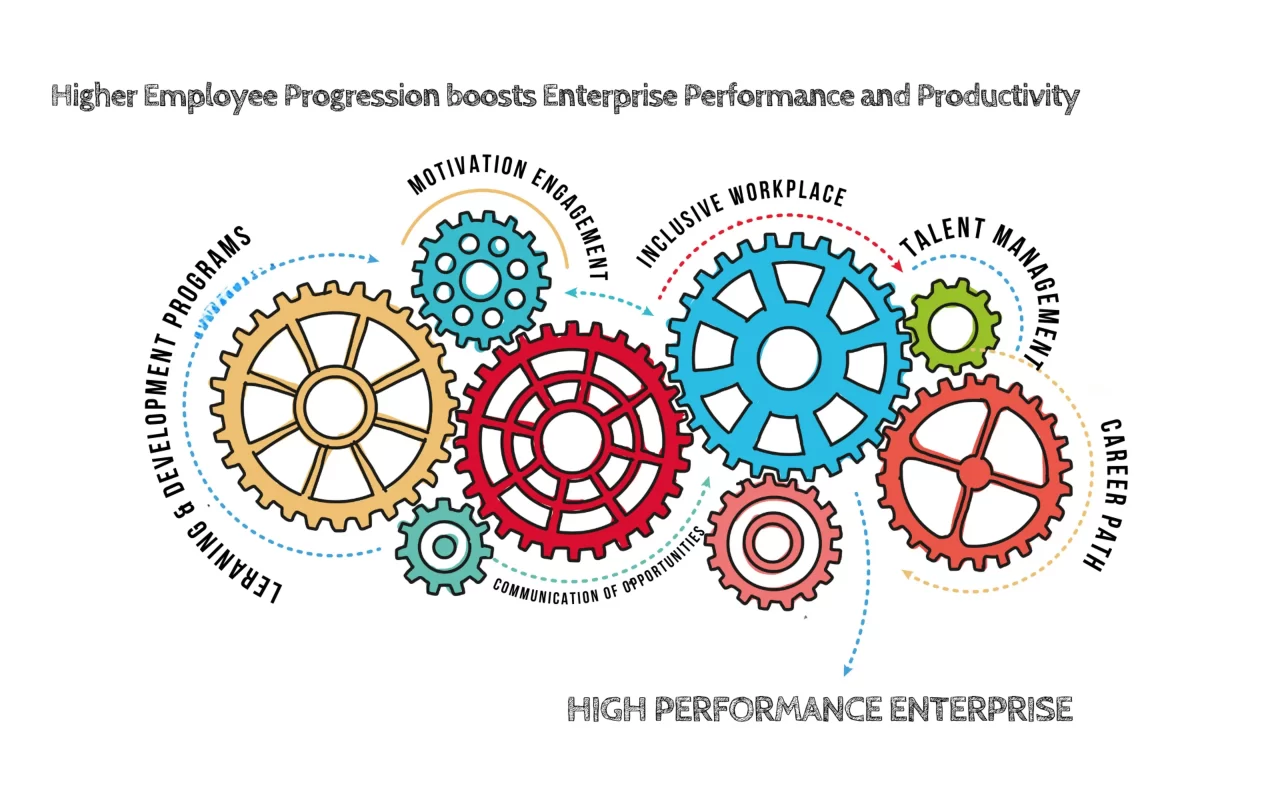
I have long advocated employee progression and development as a vital tool for boosting organisational productivity and performance. Having seen this work well in my organisation, EFS Facilities Services Group, I believe enterprises can build high-performance organisations by embracing a robust staff progression policy.
A Progression Plan for employees is a Must
I have always emphasised to my C-suite that a progression plan for employees is a must. Also, we should be able to communicate well to make an outreach about the opportunities the progression has in store for them and how employees can leverage the enterprise’s ecosystem. From enterprise growth to talent management to HR engagement to learning and development, everything has benefits to empower employee progression.
It is also essential to share the organisation’s long-term vision with employees to see what the next few years hold for them and to be able to weave a long-term commitment, mapping those future opportunities in the company. It is also essential to communicate the successful case studies concerning these to build stronger convictions amongst managers and employees on empowerment of progression that delivers results.
The Essential Booster of Staff Progression
However, I believe an essential booster in achieving high progression is the organisation’s ability to sustain reasonable growth. A growth engine is a way forward not only to attract new talent but also to retain existing ones. For any high-performing enterprise, staff progression is a critical performance indicator representing its buoyant character and people-centric approach. Besides being a vital staff motivation tool, high-level progression across all organisational tiers reflects many other positive aspects of organisational character.
These include its growth-oriented performance, creating newer opportunities for its staff, driving high employee motivation, talent retention and development with a robust learning and development culture. All these indicators further indicate that the organisation embodies dynamic leadership, strong mainstream employee engagement, and transparent and merit-based compensation structures, which aid in a positive workplace culture.
Why staff progression is crucial to organisational success?
People should know why staff progression is crucial to organisational success. It fosters employee retention, skill development, motivation, succession planning, competitive advantage, performance improvement, and employee morale, all of which are fundamental to building any high-performance enterprise. Staff progression is also a significant driver of cost-effectiveness, as existing staff progression is generally found to be cheaper than hiring new talent.
How can Employee Progression and Development be done effectively?
The moot question is, how can this be done effectively? To increase organisational staff progression, there should be programs and workshops to engage staff on newer opportunities and relevant learning and development initiatives to map these opportunities. After that, dynamic and blended learning and development programs based on relevant competency and psychometric studies will be provided.
Also, to empower this, HR talent management must establish clear career paths, set SMART goals, offer regular feedback, and encourage engagement for employees to take advantage of new opportunities. To support continuous learning and offer job rotation, high progression also requires staff motivation, for which the enterprise must promote work-life balance, reward and recognition and prioritise employee wellbeing. Also, it is crucial to address any disparities in talent management practices to foster an inclusive workplace and promote in-work progression for all.